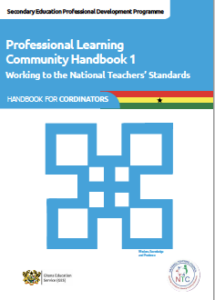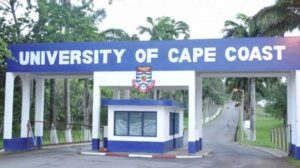UNIVERSITY OF GHANA ECONOMICS DEPARTMENT

The University of Ghana’s Department of Economics is one of the Teaching and Research Departments of the School of Social Sciences. The Department continues to produce the needed manpower to serve public, private, and international institutions including the University of Ghana.
A program in Economics is an enthralling adventure into the world of business, with money and choices being the protagonists. It encapsulates the daily challenges and choices people make at home or work. Economics is part of our daily lives because our needs and wants always exceed our limited resources.
The program will enlighten applicants on topics like choices and opportunity cost, economic growth and development, public finance, inflation, exchange rate, interest rate, international trade, and entrepreneurship to mention but a few, and will prepare you for an exciting world of business.
Our graduates also find jobs in many of the key sectors of the economy such as Banking, Insurance, Retail, and Manufacturing to mention but a few. Others proceed to undertake postgraduate studies in Economics, Finance, or Business Administration. The Department currently runs a BA, MPhil, and Ph.D. in Economics.
The Department of Economics was established in 1948 and is one of the teaching and research departments under the Faculty of Social Studies.
The Department offers undergraduate, graduate and doctorate degrees in Economics and a Master of Arts (M.A.) in Economic Policy Management.
The Department also services other departments/establishments of the University namely, the College of Agriculture and Consumer Sciences, the University of Ghana City Campus, the Legon Centre for international Affairs, the Regional Institute for Population Studies and the Institute of Continuing and Distance Education.
STUDENT NUMBERS
The Department continues to admit a high number of students in spite of the increasing administrative challenges. Considering the year under review, the Department had two thousand five hundred and fifty nine (2559) students (see breakdown below).
Summary of Student Numbers
| LEVEL | Number of Students |
|---|---|
| LEVEL 100 | 804 |
| LEVEL 200 | 609 |
| LEVEL 300 | 540 |
| LEVEL 400 | 412 |
| M.Phil Economics (I & II) | 64 |
| MA. Economic Policy Management | 120 |
| PhD Development Economics | 10 |
| Total | 2559 |
In addition to the above, the department also serves the Accra City Campus and the Distance Education Students where similar number of students is taught across the departmental courses from Level 100 to 400.
AERC Category C University Status
The African Economic Research Consortium (AERC) has given the Department a Category C University Status by which the Department is an accredited Centre for capacity building of economists in Anglophone West Africa through a unified research and training network.
Although still a member of the Joint Facility For Electives (JFE), MPhil students of the Department will no longer go to Nairobi to take additional elective courses: these will be taught in the Department.
Postgraduate students from Anglophone Africa would now be sponsored by AERC to do study for their MPhil at the University of Ghana albeit within the overall “Collaborative Masters Program in Economics for Anglophone Africa” (CMAP).
More fundamentally for research work, the Category C status entails strengthening the Department’s doctoral program to train economists to the Ph.D. level, within the AERC’s “Collaborative Ph.D. Program” (CPP). This will be fused into the Ph.D. framework mounted in collaboration with ISSER.
M.Phil Students came tops at the Joint Facilities for Electives in CMAP for Anglophone Africa (1995-2010).
M.Phil students of the Department have continued to excel at the Joint Facilities For Electives in the “Collaborative Masters Program in Economics for Anglophone Africa” (CMAP) where Mphil economics students from Anglophone Africa converge in Nairobi for a 3-month intensive two-semester program in elective economics courses.
Out of the 25 CMAP universities, the M.Phil economics students from the University of Ghana came first, a position the Department virtually monopolized among all the 25 participating Anglophone universities from 1995-2010.






